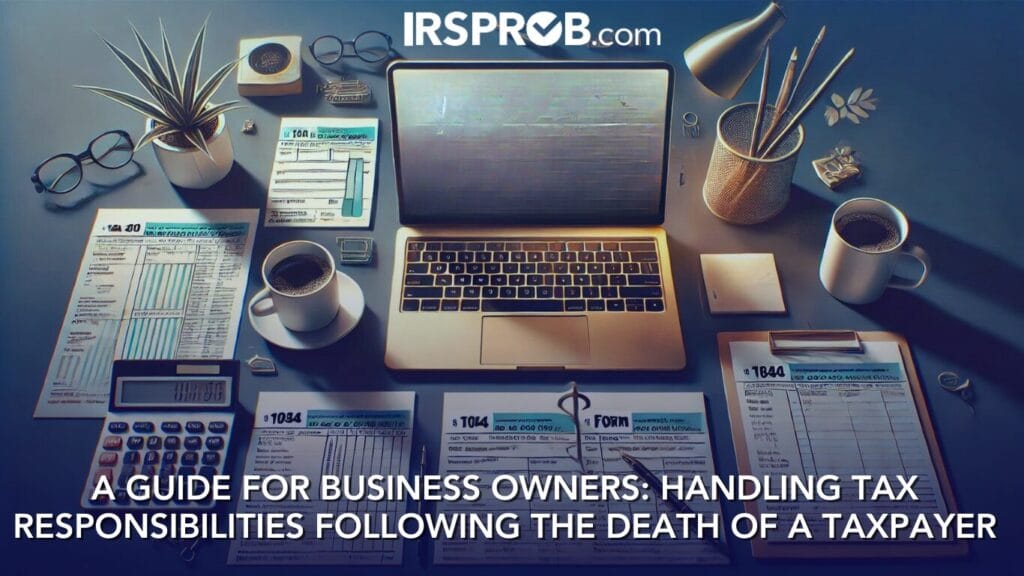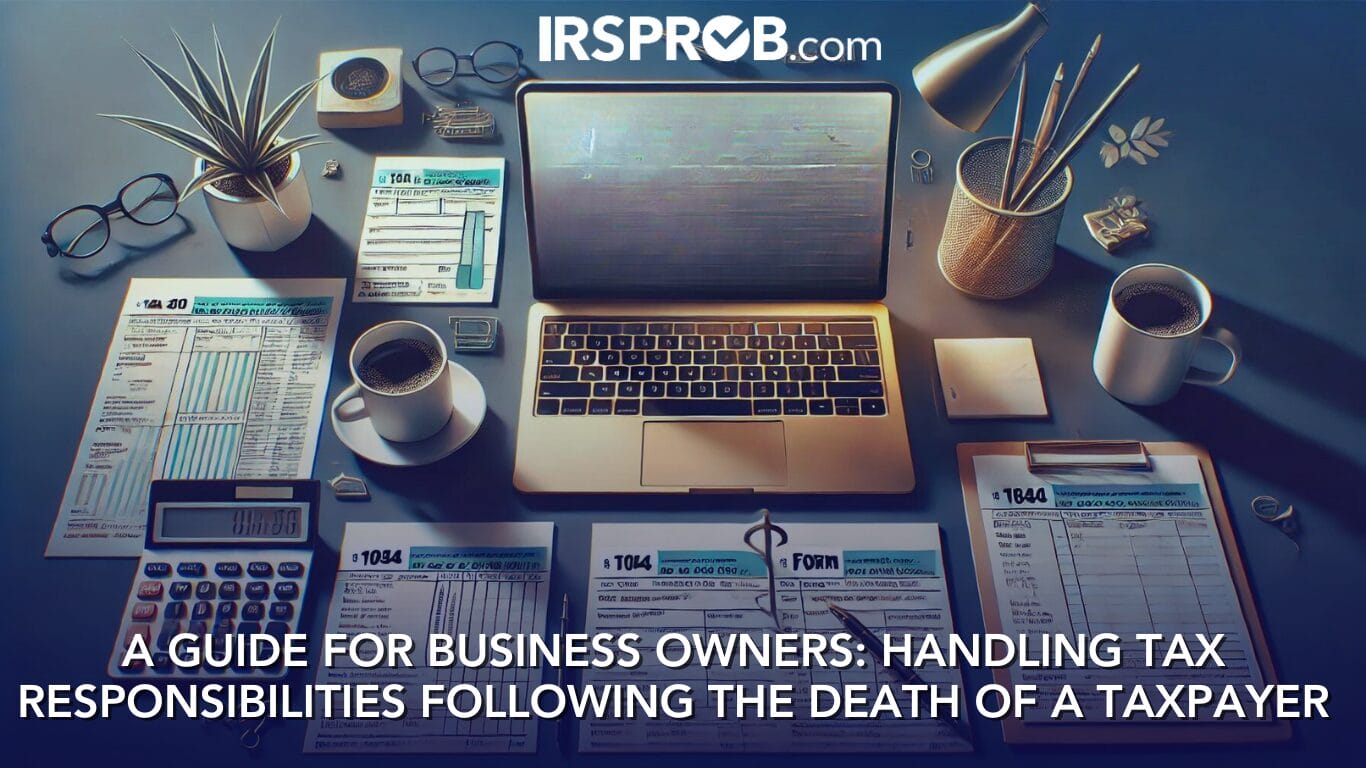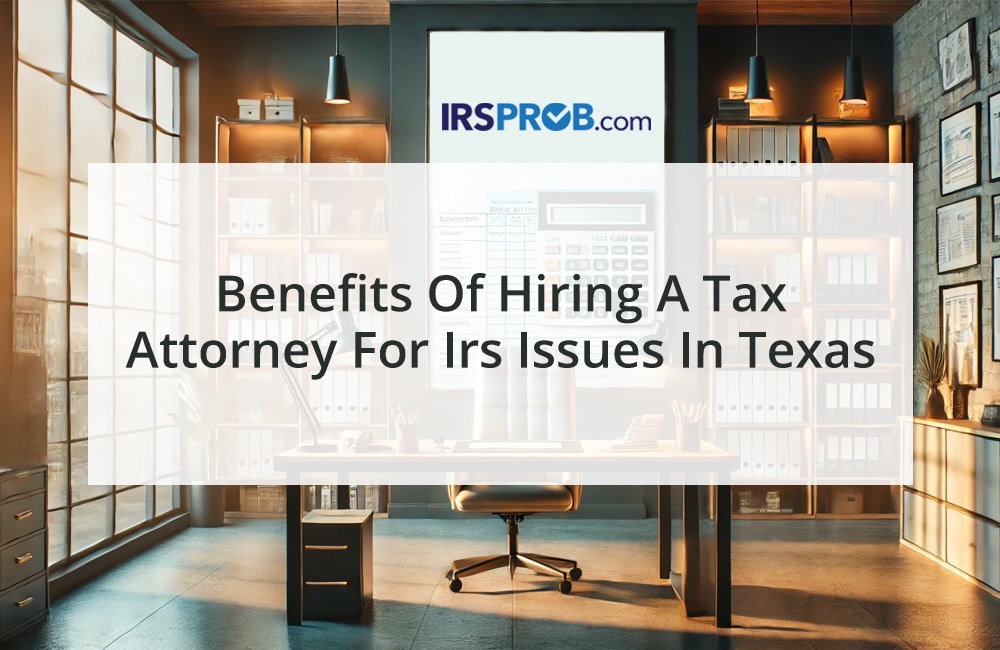
The death of a taxpayer introduces several legal and tax responsibilities that must be addressed promptly. If you are a business owner who has been named a personal representative, executor, or administrator for an estate, or if you’re handling estate matters after the death of a loved one, understanding the tax obligations involved can save you from complications down the road. Let’s break down the essentials in a clear, business-focused manner.
The Role of a Personal Representative
When a taxpayer passes away, someone needs to manage the estate, and this responsibility falls on the personal representative—a court-appointed individual who acts as the executor if there’s a will, or an administrator if there’s not. In the absence of a probate process, the IRS may allow someone in charge of the deceased’s property, such as a trustee or beneficiary, to take on the responsibility. But what exactly does this entail for taxes?
Key Tax Forms That Must Be Filed
As a personal representative, you’ll need to manage several types of tax returns, depending on the estate’s complexity:
- Final Income Tax Return (Form 1040): This return covers income earned from January 1 until the date of death. It’s essentially the deceased’s last individual income tax filing.
- Estate Income Tax Return (Form 1041): If the estate earns more than $600 in income after the death, such as from interest, dividends, or capital gains, you must file this return. Estates can generate income from assets such as bank accounts, investments, or rental properties, and it’s crucial to account for these properly.
- Estate Tax Return (Form 706): This return only applies if the value of the decedent’s estate exceeds the federal estate tax exclusion (currently $13.61 million in 2024). Even if the estate value is below this threshold, you might still want to file to transfer the unused exclusion to a surviving spouse under the portability election.
- Gift Tax Return (Form 709): If the deceased gave more than the annual gift exclusion (set at $18,000 for 2024), you may need to file this return for the year of death.
- Past Year Returns: If the deceased failed to file any previous years’ returns (Forms 1040, 1040-X, or 709), the responsibility falls on the personal representative to complete these.
These tax forms can feel overwhelming, but with proper guidance, you can avoid costly mistakes. Always consult IRS publications and seek professional tax advice when necessary.
What If There’s No Appointed Personal Representative?
If the deceased did not go through probate and no personal representative has been appointed by the court, the IRS allows a “person in charge” to file necessary returns. This could be a surviving spouse filing jointly, a trustee of a revocable trust, or a beneficiary.
Personal Liability for Unpaid Taxes
One of the most critical risks to business owners acting as personal representatives is personal liability for unpaid taxes. If you distribute estate assets without paying all of the taxes due, and the estate becomes insolvent as a result, you could be held personally liable for the unpaid amount. Before distributing any assets to beneficiaries, ensure all taxes are accounted for and paid.
Obtaining an Employer Identification Number (EIN)
If the estate goes through probate, the executor should apply for an EIN as soon as possible. This EIN will be needed for the estate’s tax filings, including any Forms 1041 or 706. You can apply for an EIN online via the IRS website.
Notifying the IRS of Your Role
As a personal representative, you must notify the IRS of your fiduciary relationship by filing Form 56. This form officially establishes that you are responsible for the estate’s tax filings and obligations. You can also use this form to notify the IRS of changes or termination of your fiduciary role.
Prompt Assessment and Discharge of Liability
To limit your liability as a personal representative, you can request a prompt assessment using Form 4810, which shortens the IRS’s statute of limitations from three years to 18 months. Additionally, you can request a discharge from personal liability on estate taxes by filing the appropriate forms once all tax returns are completed. After filing, the IRS has nine months to notify you of any remaining tax liabilities, allowing you to close the estate with confidence.
Managing Estate Income and Reporting
When managing an estate, you’ll need to distinguish between income received before and after the decedent’s death. For example:
- Income received before death is reported on the decedent’s final Form 1040.
- Income earned on estate assets after death, such as interest or dividends, is reported on Form 1041 for the estate.
Planning Ahead
Business owners should consider these tax implications when managing estates, whether as part of personal responsibilities or if assisting family members and clients. Proper planning can help mitigate negative tax effects. Consider contacting a tax professional if any major life event occurs—such as marriage, retirement, or a significant change in income—that could impact your tax situation. This proactive approach is especially important when dealing with the complexities of estate taxation and ensuring compliance with IRS regulations.
Final Thoughts
Navigating the tax responsibilities after the death of a taxpayer can be complex, especially for business owners who may already be juggling numerous financial obligations. Understanding the duties of a personal representative and staying on top of tax filings ensures a smoother transition, protects you from personal liability, and helps you fulfill your fiduciary role efficiently.
If you have questions or need help with tax planning, especially regarding estate taxes, don’t hesitate to seek professional advice. A little planning goes a long way in safeguarding your interests and those of the beneficiaries you serve.








